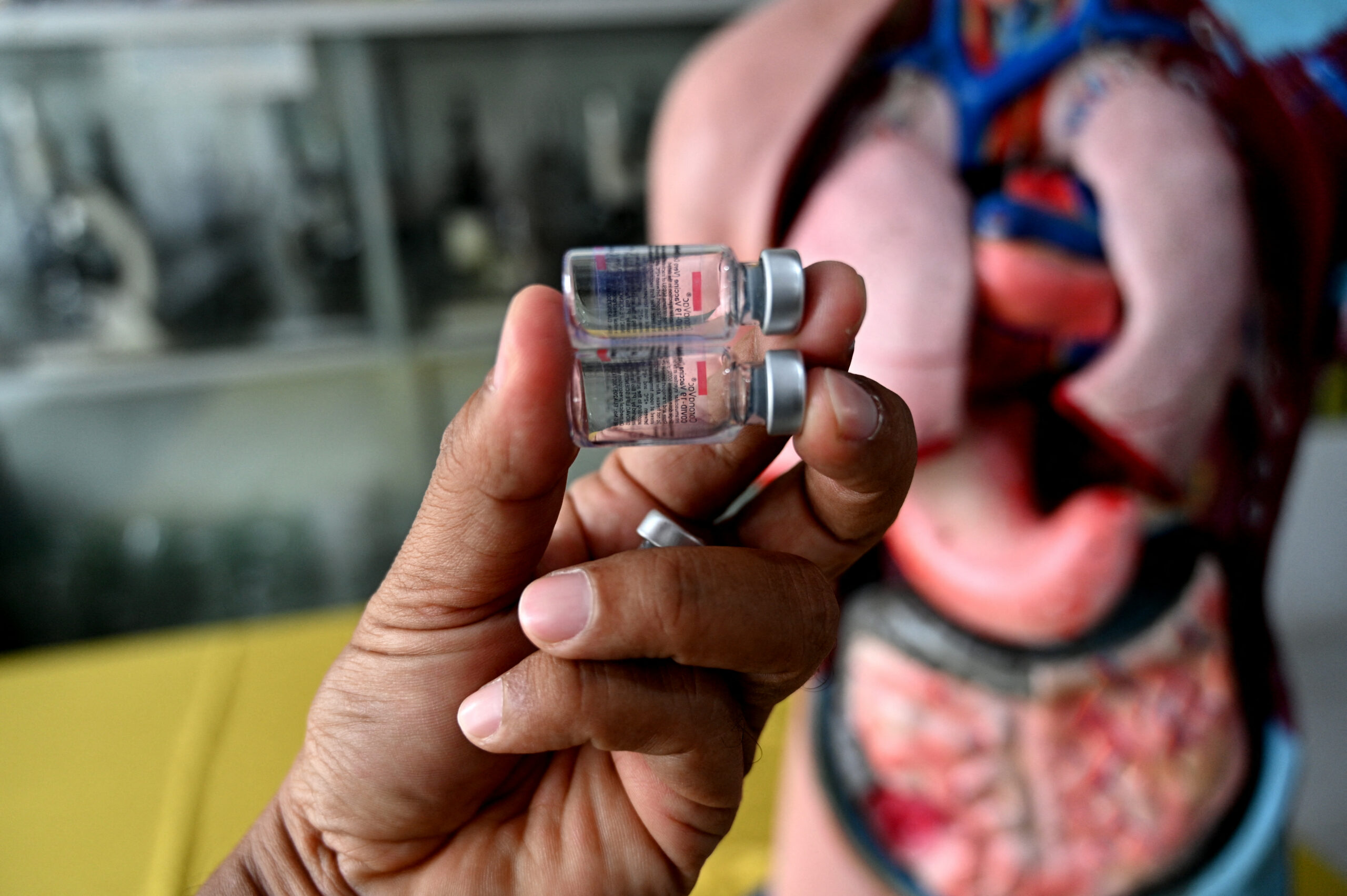Healthcare systems across the world have been pushed to the brink by the COVID-19 pandemic and countries are using all available scientific resources to fight the ongoing spread of the virus.
In the wake of surging infections driven by variants, the use of antibody testing – checking blood for signs of previous infection – to identify levels of protective immunity in people and detect infection pockets can be useful to countries attempting to prioritise the most vulnerable populations in need of vaccines.
Some Asian countries have grappled with the spread of the highly transmissible Delta variant, which has been exacerbated by slow rollouts of vaccination programmes and chronic shortages of medical resources.
In Indonesia, the emergence of the Delta variant, compounded by insufficient vaccine supplies and availability along with vaccine hesitancy, has contributed to an almost three-fold increase in daily reported cases. The case surge also has pushed some hospitals to the limit, largely due to a lack of beds and oxygen supplies.
While progress in Asia varies widely, rapid rollout of vaccinations in Singapore has shown to be effective in preventing severe cases. To date, more than 80% of the population is fully vaccinated. Despite the recent surge in reported cases, a relatively small percentage of the vaccinated population has become severely ill or placed in critical care.
In addition to scaling up the rollout of vaccines, a recent study found new imperatives in testing are equally critical to reduce the risk of case resurgence and allow the reopening of economies.
While antibodies are not the only marker of immunity, antibody tests – also known as serology tests – play an important role throughout the patient care pathway and are vital for the management and surveillance of COVID-19. The ability to detect the presence of antibodies specific to SARS-CoV-2 allows the identification of previously infected individuals, especially those who were asymptomatic or undiagnosed. It is estimated that at least one third of infections are asymptomatic.
Many countries with vaccine supply shortages have relied on antibody testing to determine how to prioritise vaccinations. In Lithuania, about 40% of 20,000 patients and staff in care facilities who have had COVID-19 will be excluded from a vaccination programme. For the remaining 60%, rapid antibody tests were conducted before administering a vaccine shot.
New imperatives in testing are equally critical to reduce the risk of case resurgence and allow the reopening of economies
Antibody testing is also used in India to inform public health officials about the most vulnerable groups, the dynamics of transmission and how to enact control measures. In 2020, after the first COVID-19 wave, an antibody survey conducted in Mumbai showed 57% of slum populations had antibodies, while only 16% in high-rise building populations had them, suggesting a higher level of susceptibility in the latter group if there was a second wave.
Subsequent data released by the Mumbai Municipal Corporation confirmed 90% of infections in the second virus wave were in the high-rise building populations, demonstrating the value of such surveys. This also has helped inform vaccine distribution strategy, prioritising people without infection-acquired immunity and those most susceptible to infection.
These cases illustrate how antibody testing can be a central part of vaccination prioritisation strategies, especially in countries across Asia where vaccine supply is limited.

Antibody testing can help healthcare professionals understand immunity and vaccine failure. At a population level, the tests can determine the prevalence of Covid-19 in various demographic groups.
Beyond vaccination prioritisation, a combination of point-of-care antigen or polymerase chain reaction (PCR) testing and antibody testing can help inform clinical and public health decisions as countries look toward safely reopening communities and borders.
Countries that have reopened borders or started lifting travel restrictions have opted for antigen or PCR testing prior to travel. Travelers must present a negative PCR test no more than 72 hours prior to departure and undertake another PCR test upon arrival.
In its first big move to lift border restrictions, Singapore has piloted quarantine-free travel lanes for vaccinated passengers from Germany, Brunei, and from the 18th October, the UK, USA and further countries across Europe and North America. They have also introduced air travel passes for visitors from Hong Kong, Macau, Taiwan and China. The introduction of differentiated border measures for travellers comes with an essential set of safeguards, including more tests.
Antibody testing can help healthcare professionals understand immunity and vaccine failure
The cost of testing and the practicalities of this requirement may be a challenge for some, including larger families hoping to travel together. Singapore allows fully vaccinated travelers from designated countries to skip quarantines provided they take three COVID-19 tests on a schedule of two days before departure, upon arrival, and one again on day seven.
Antibody testing will be a boon to travelers if administered in an efficient and cost-effective manner. Ultimately, an integrated approach combining testing with accessible data, high rates of vaccination and the use of personal protective equipment will help ease communities emerge from lockdown, safely resume travel and unlock their economies.
The more data we can gather on the virus, how it spreads within populations and how the vaccines are working, the better equipped the world will be to bring the pandemic to an end. Diagnostic tests including antigen, PCR and antibody testing are a crucial part in obtaining this data and supporting a vaccination prioritisation strategy.
Dr Leong Hoe Nam is an infectious disease specialist at Mount Elizabeth Novena Hospital in Singapore. Harjit Gill is the CEO of Asia Pacific Medical Technology Association.


